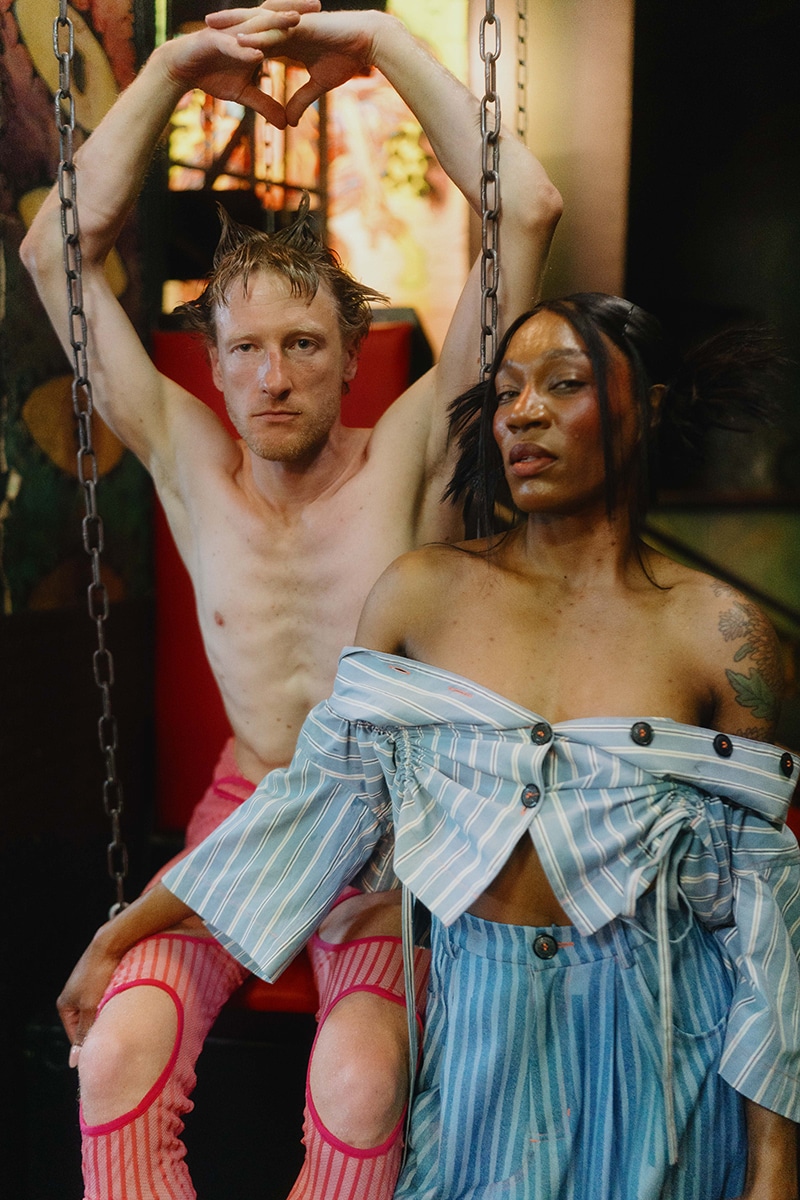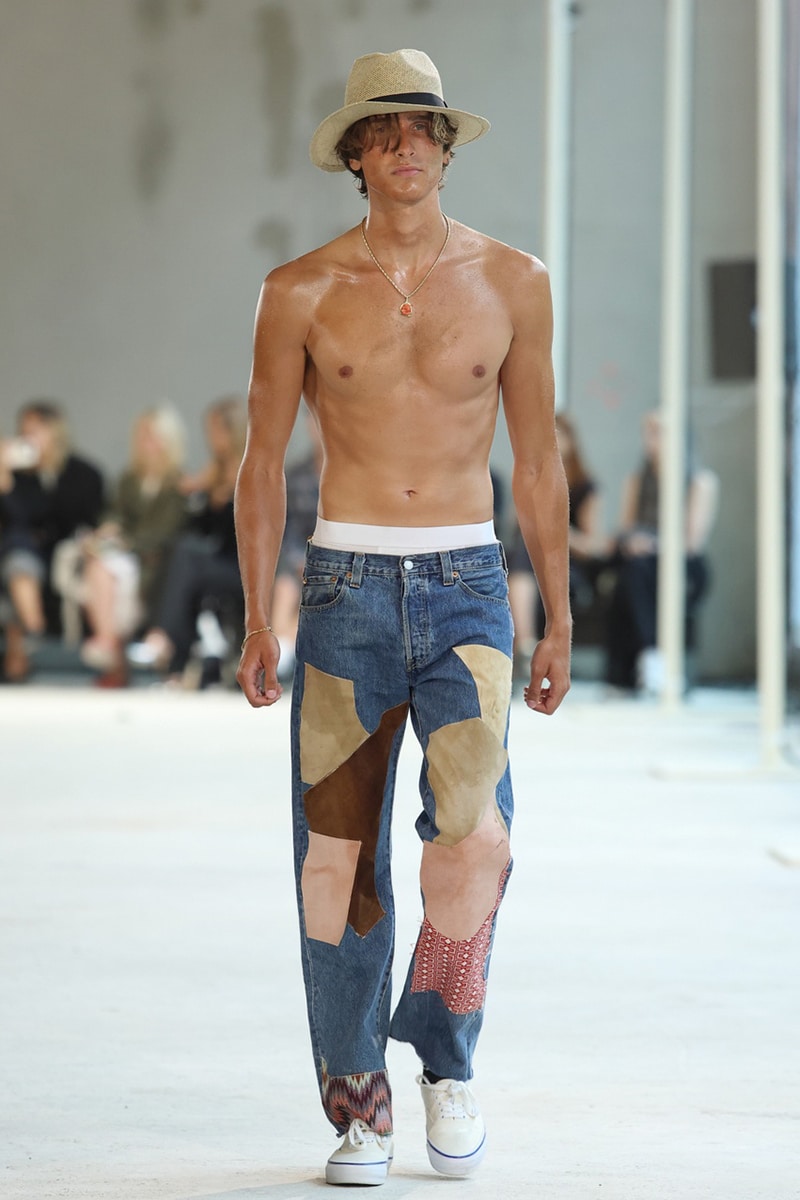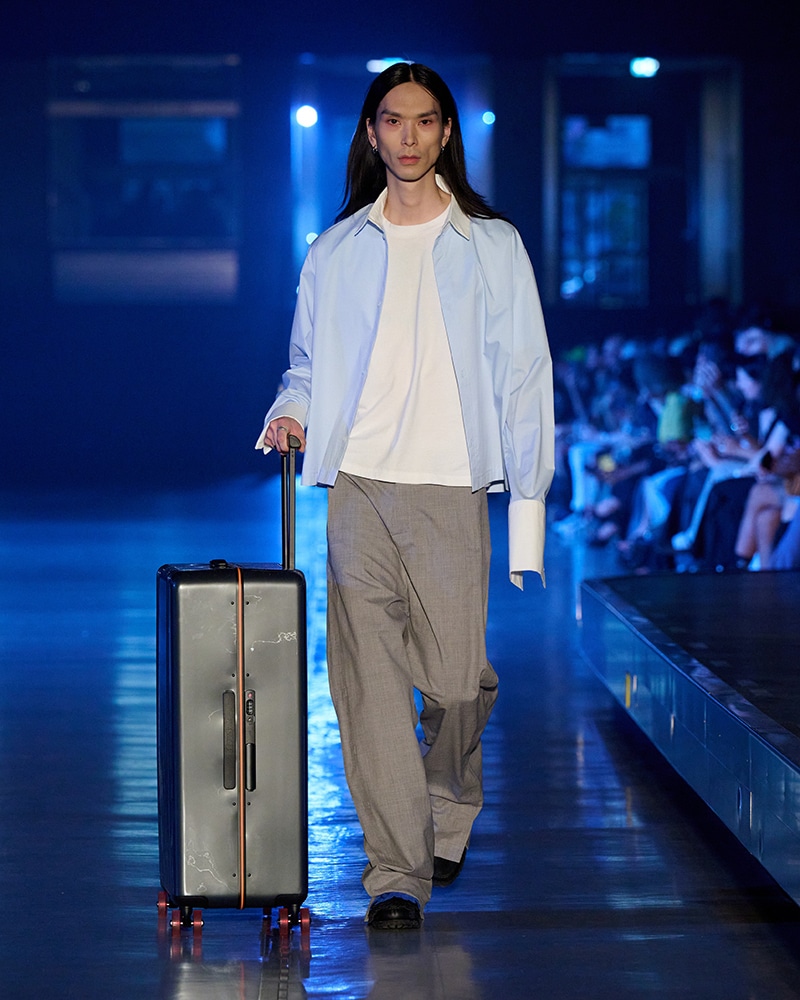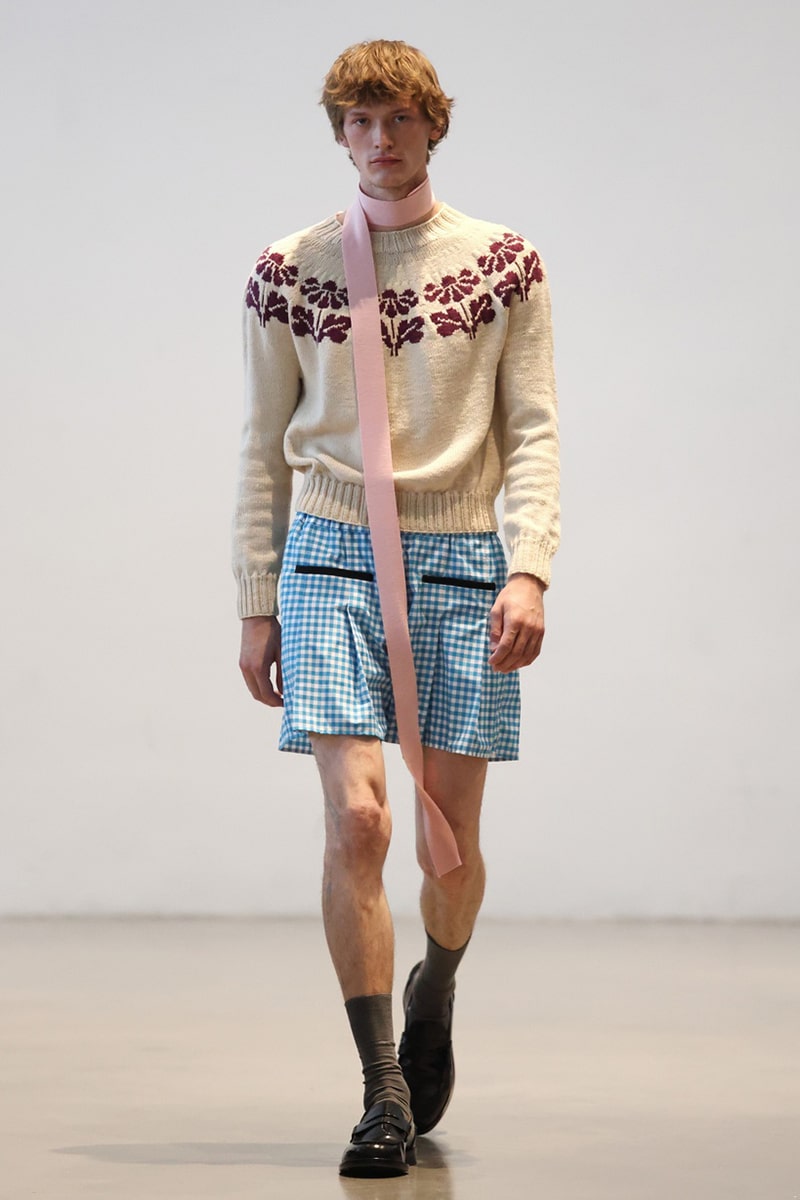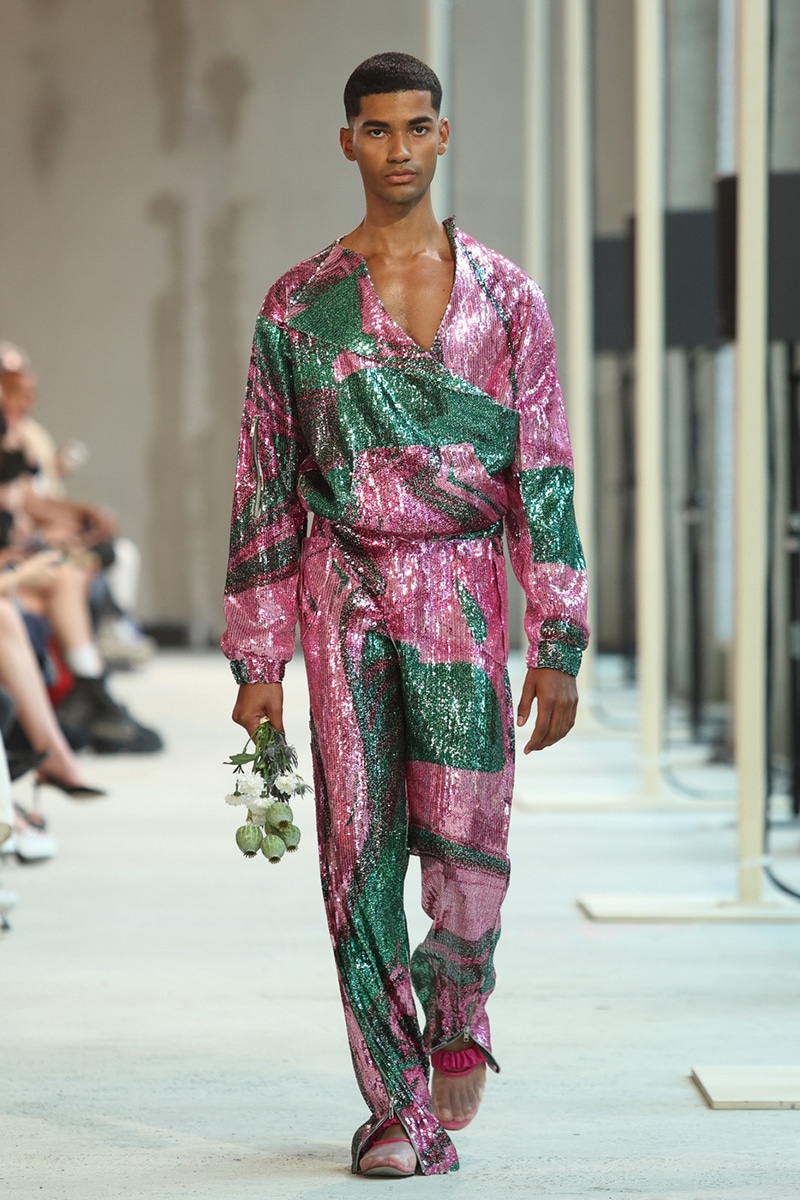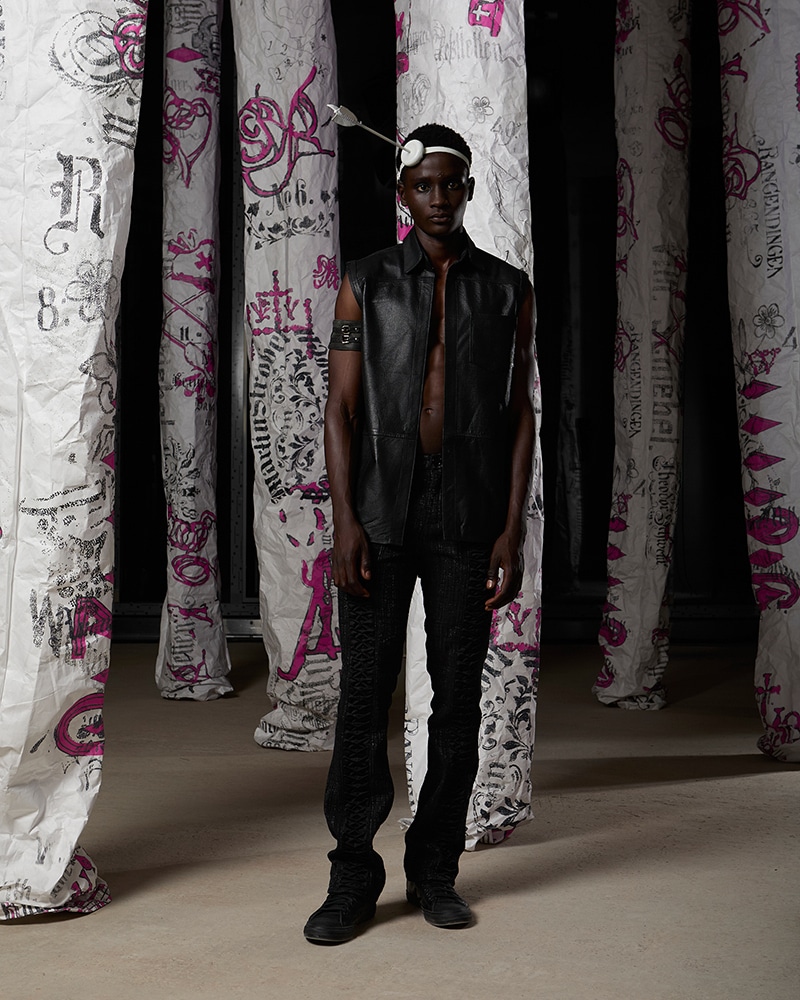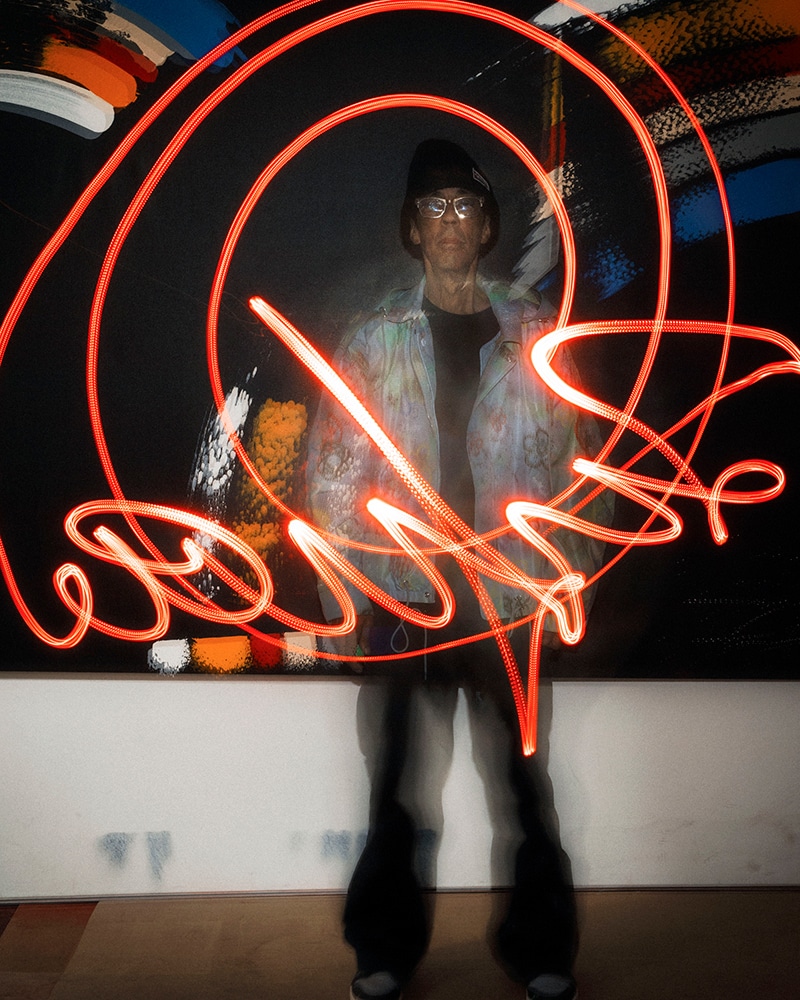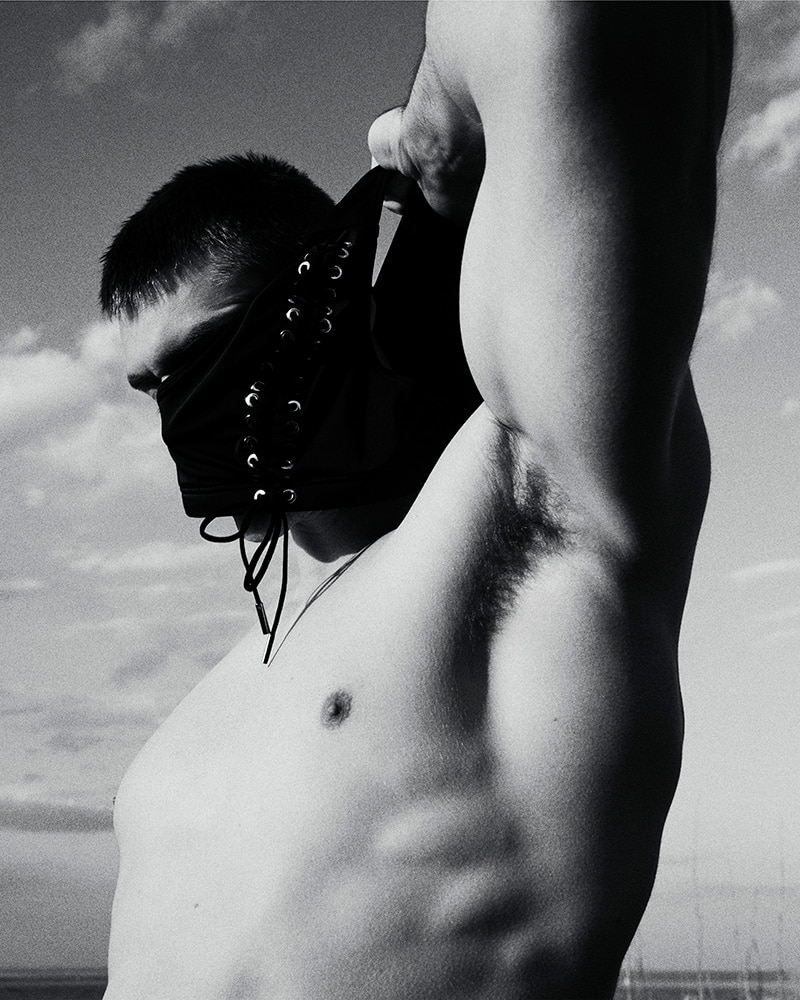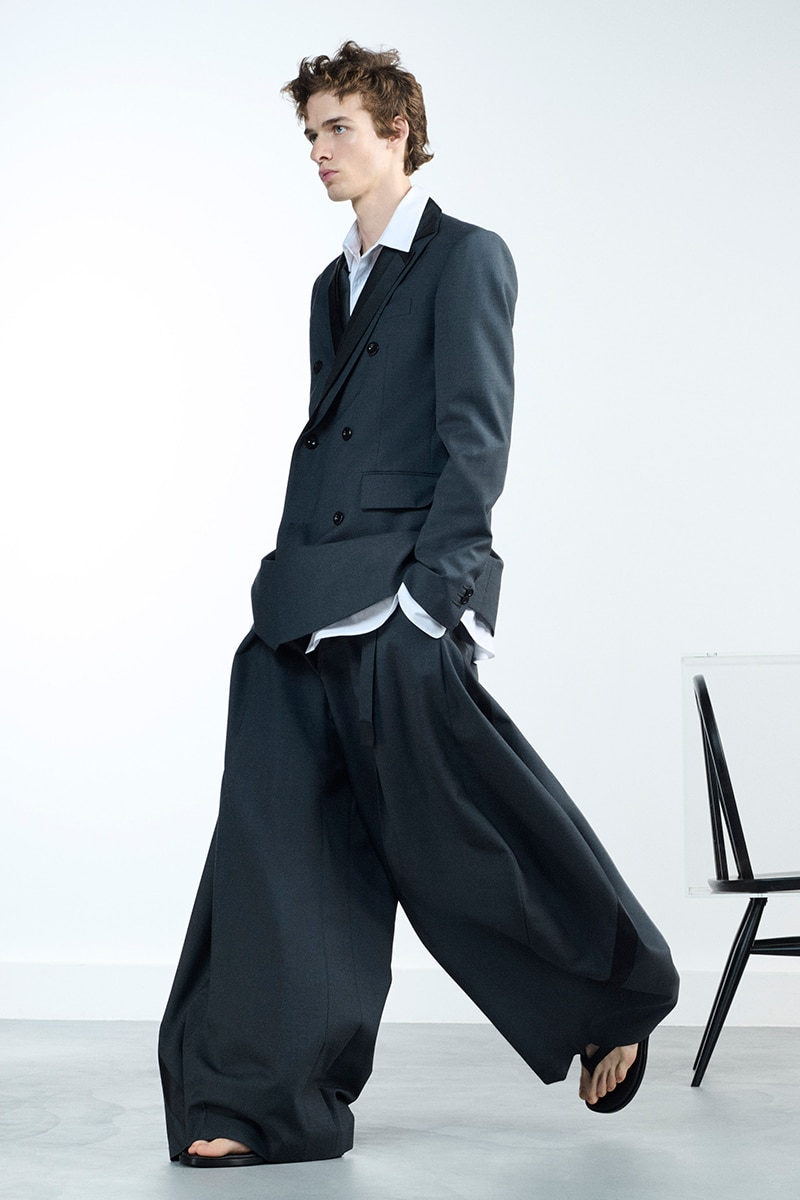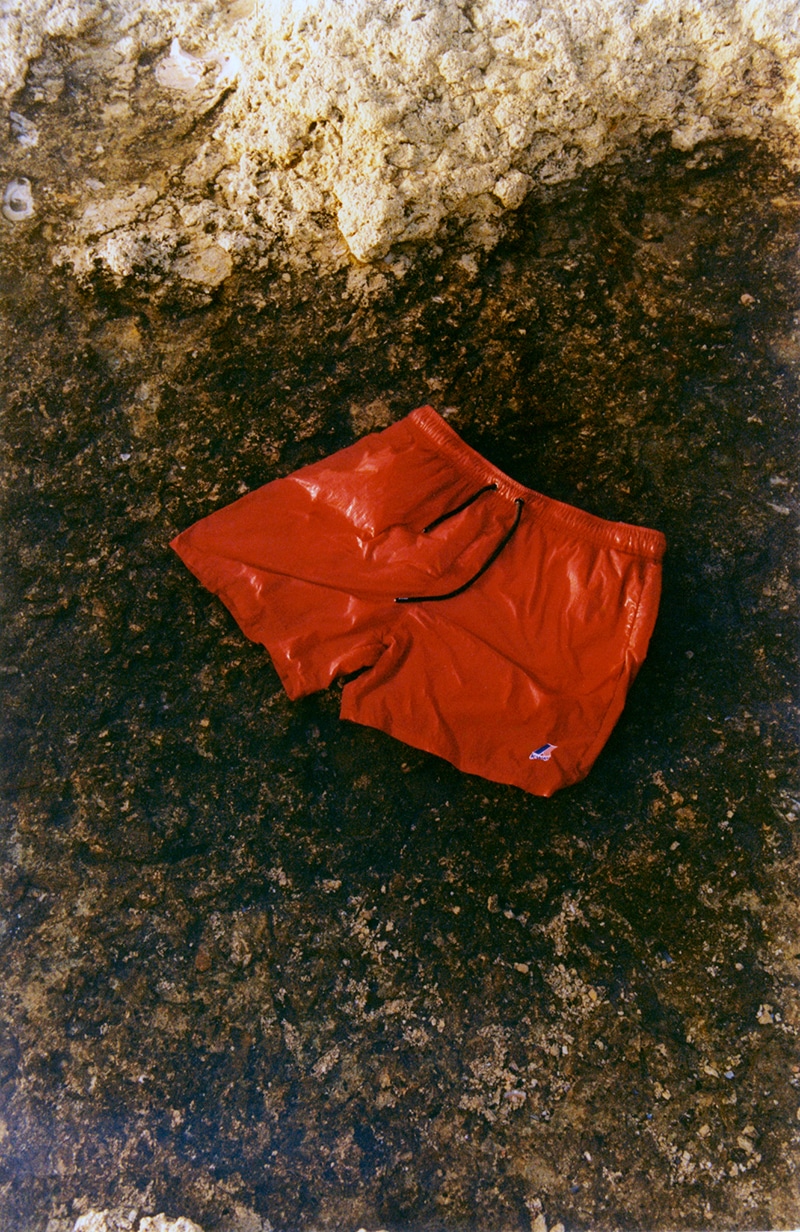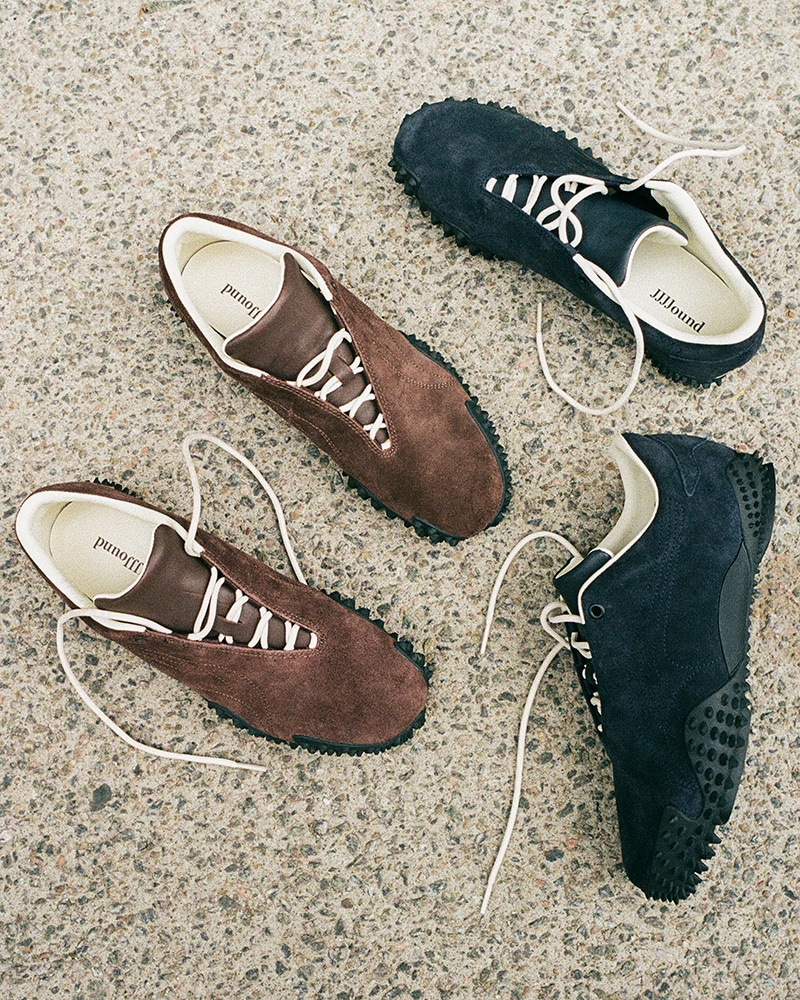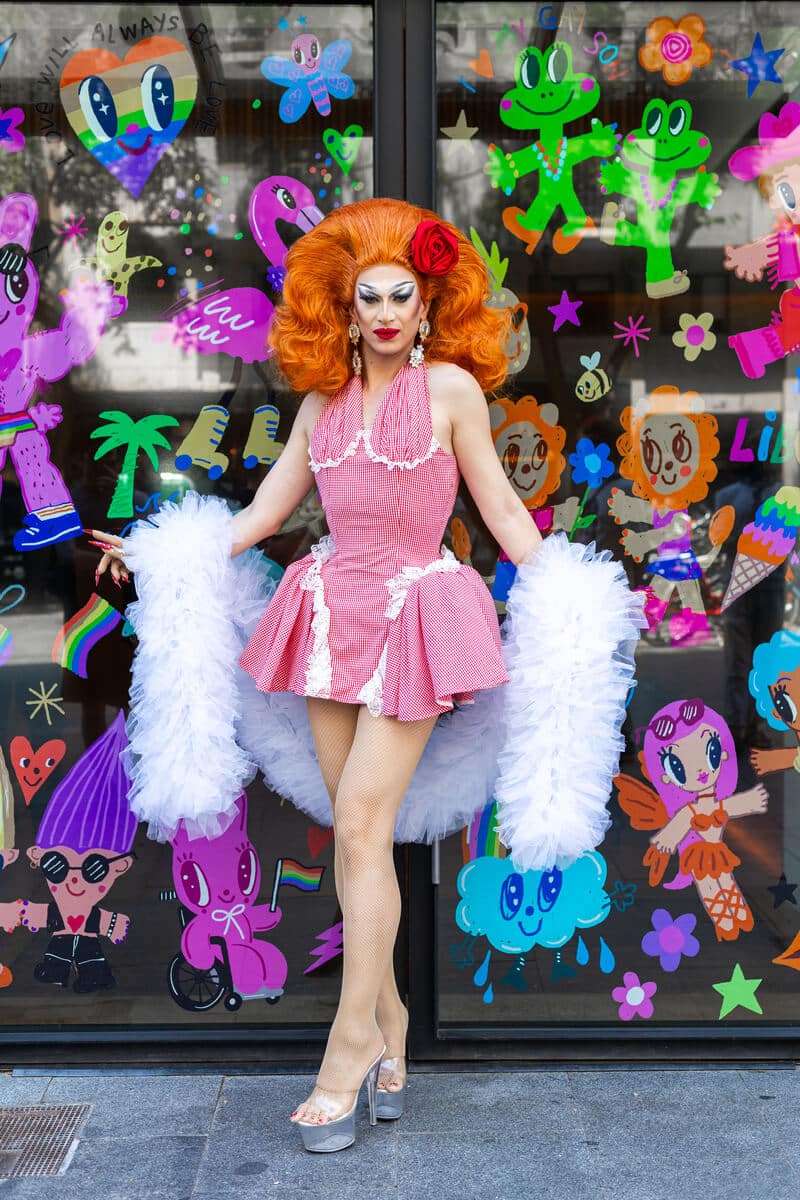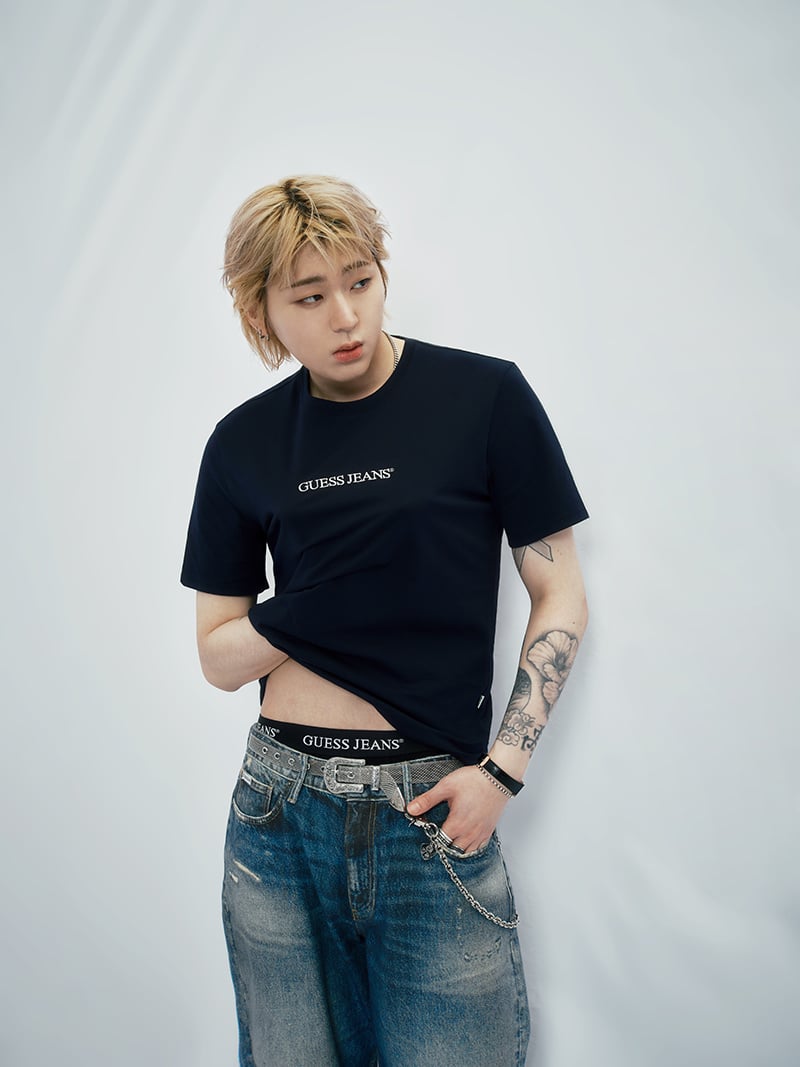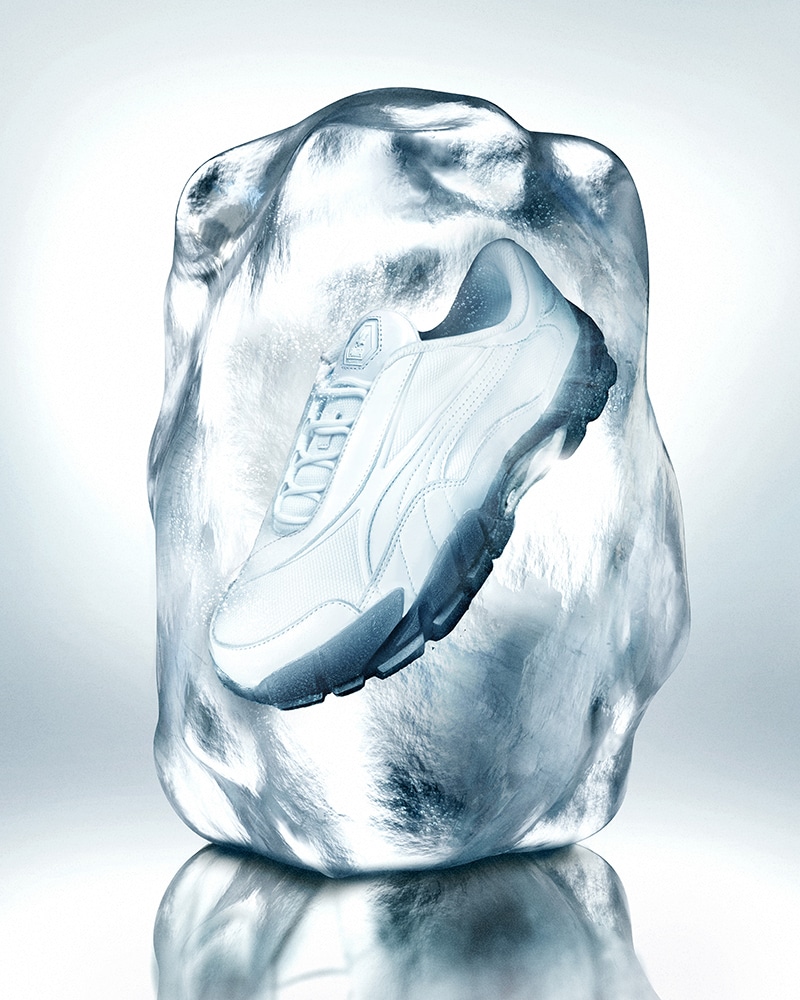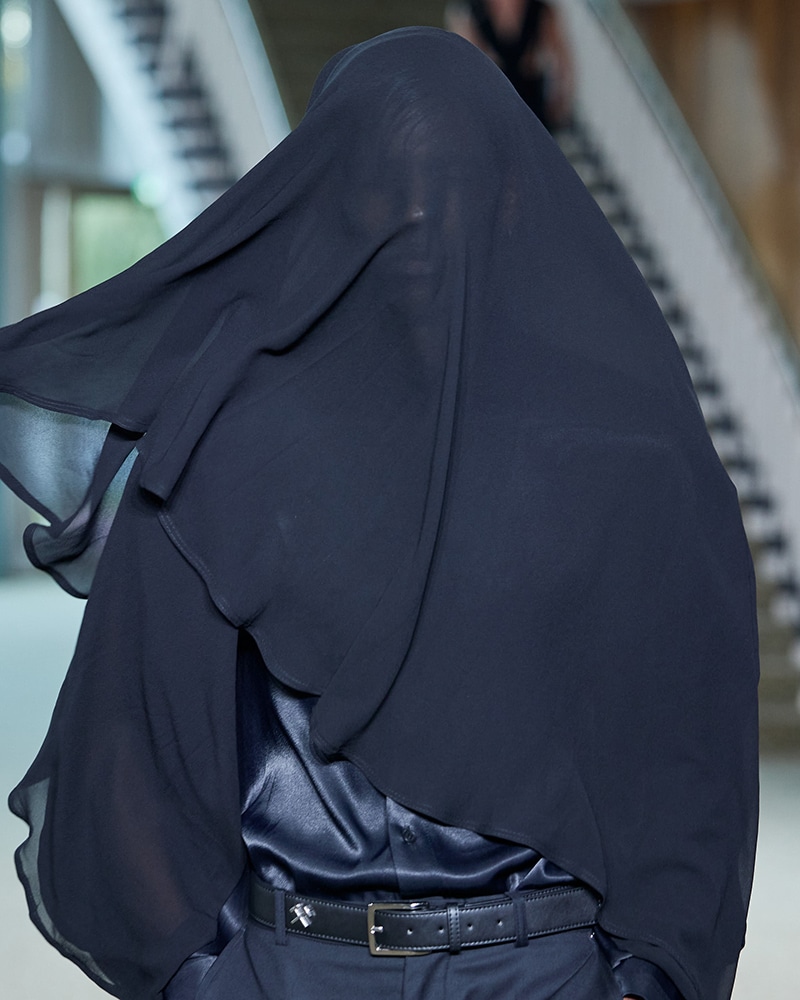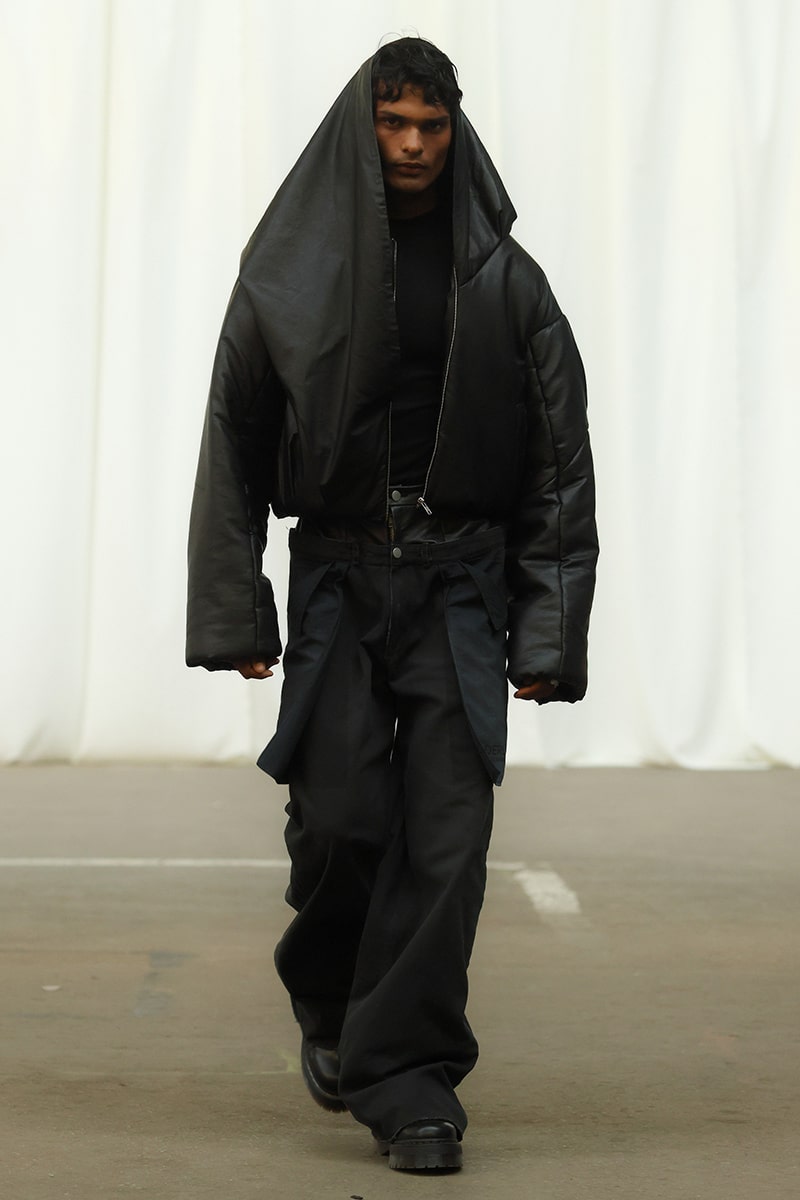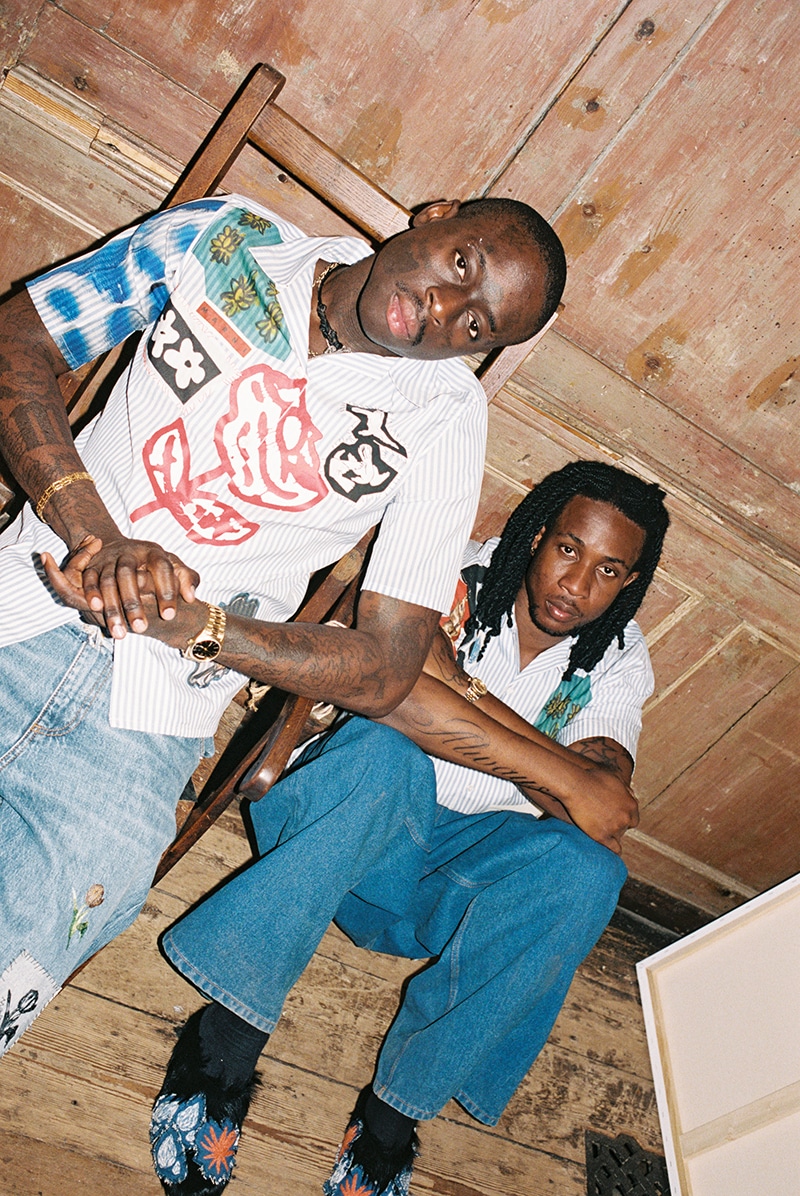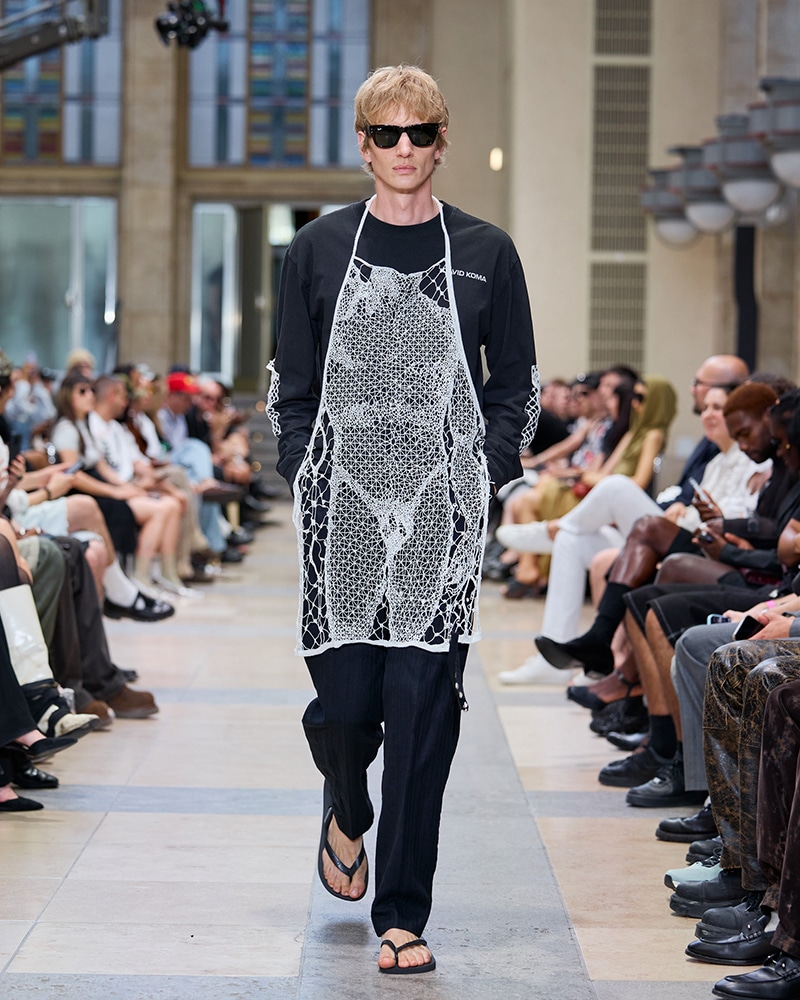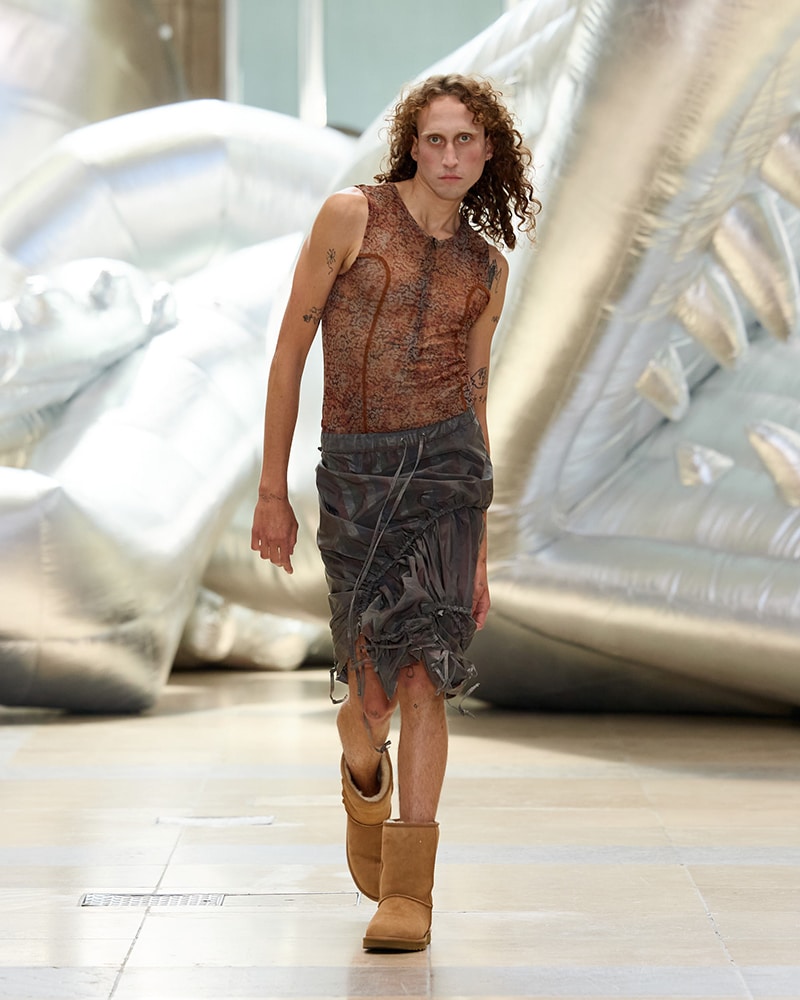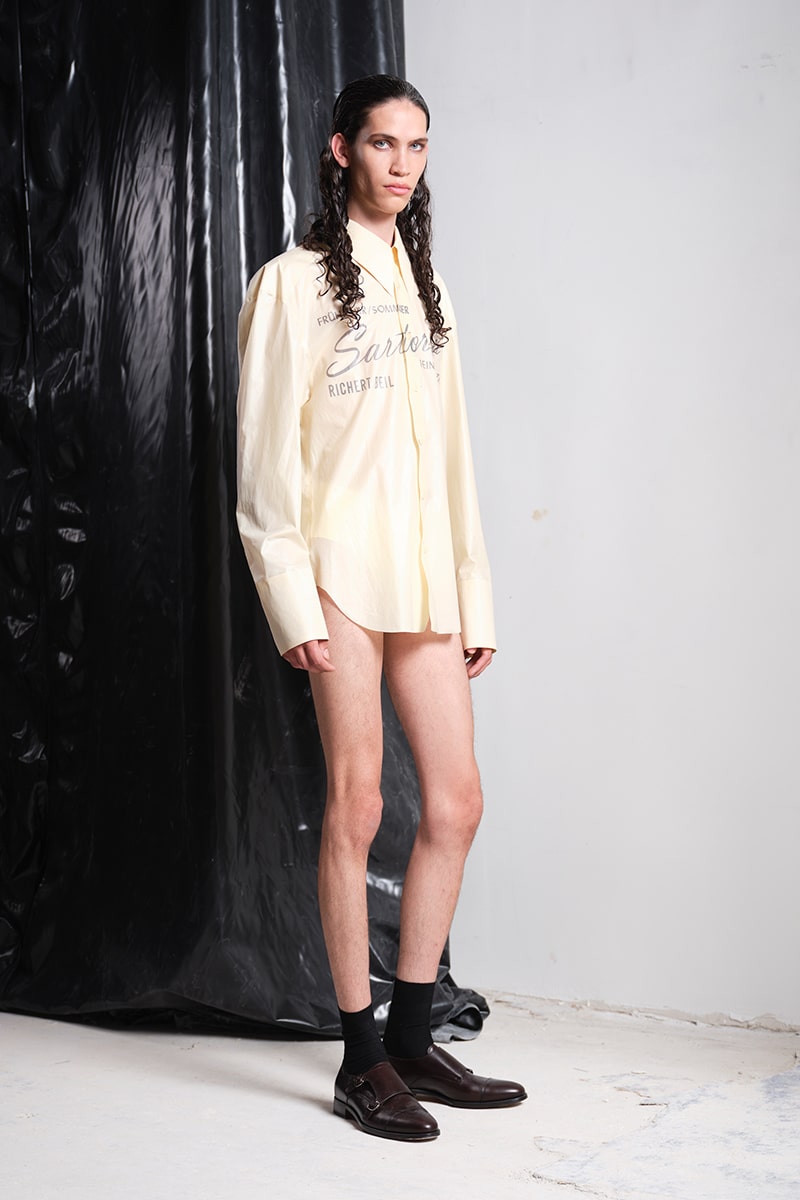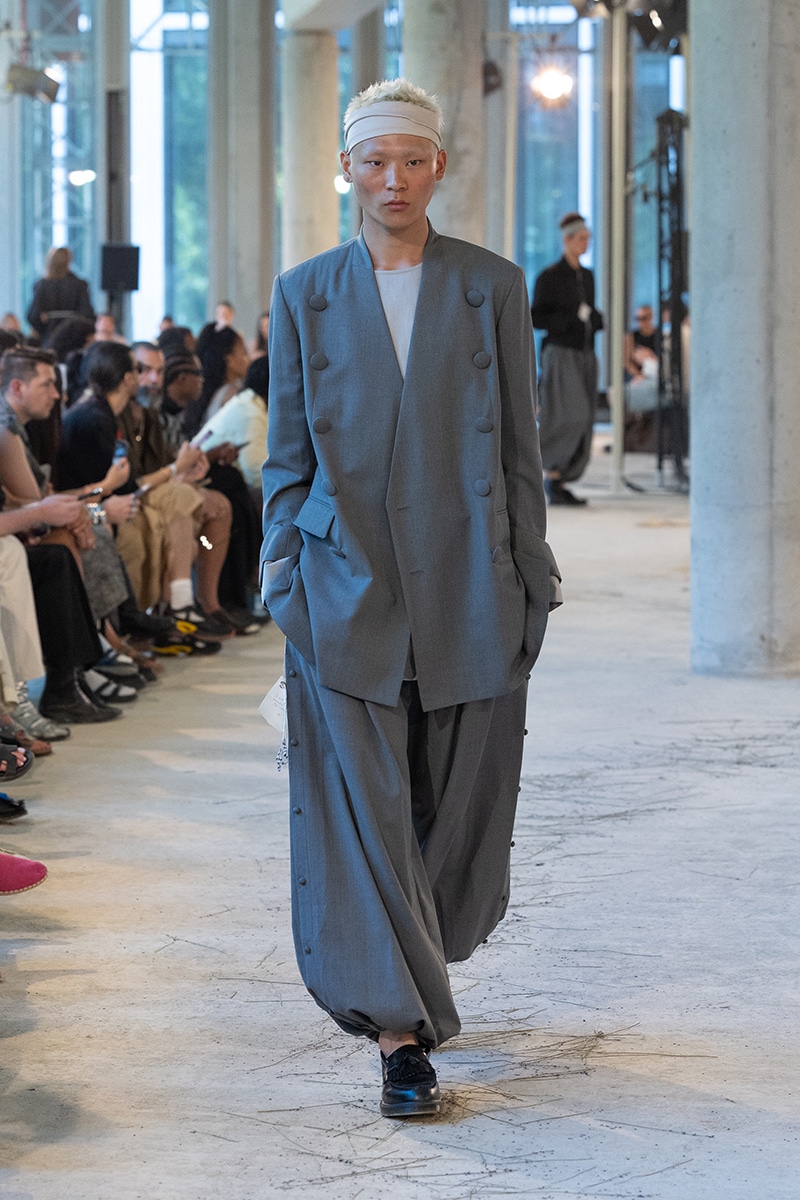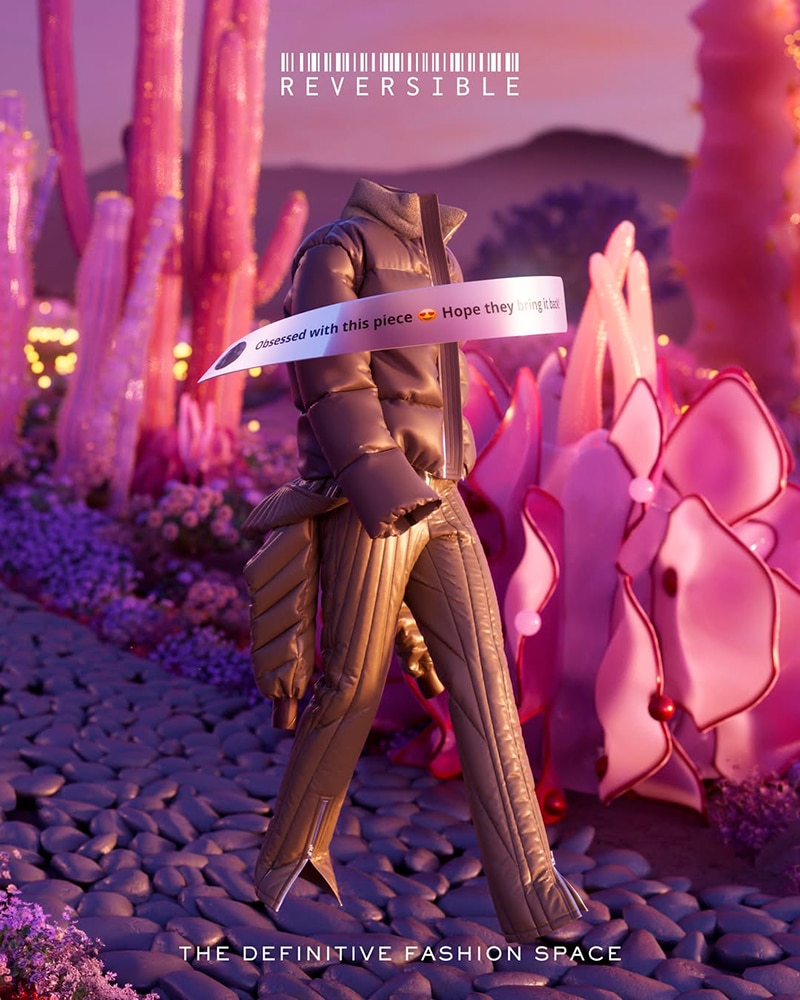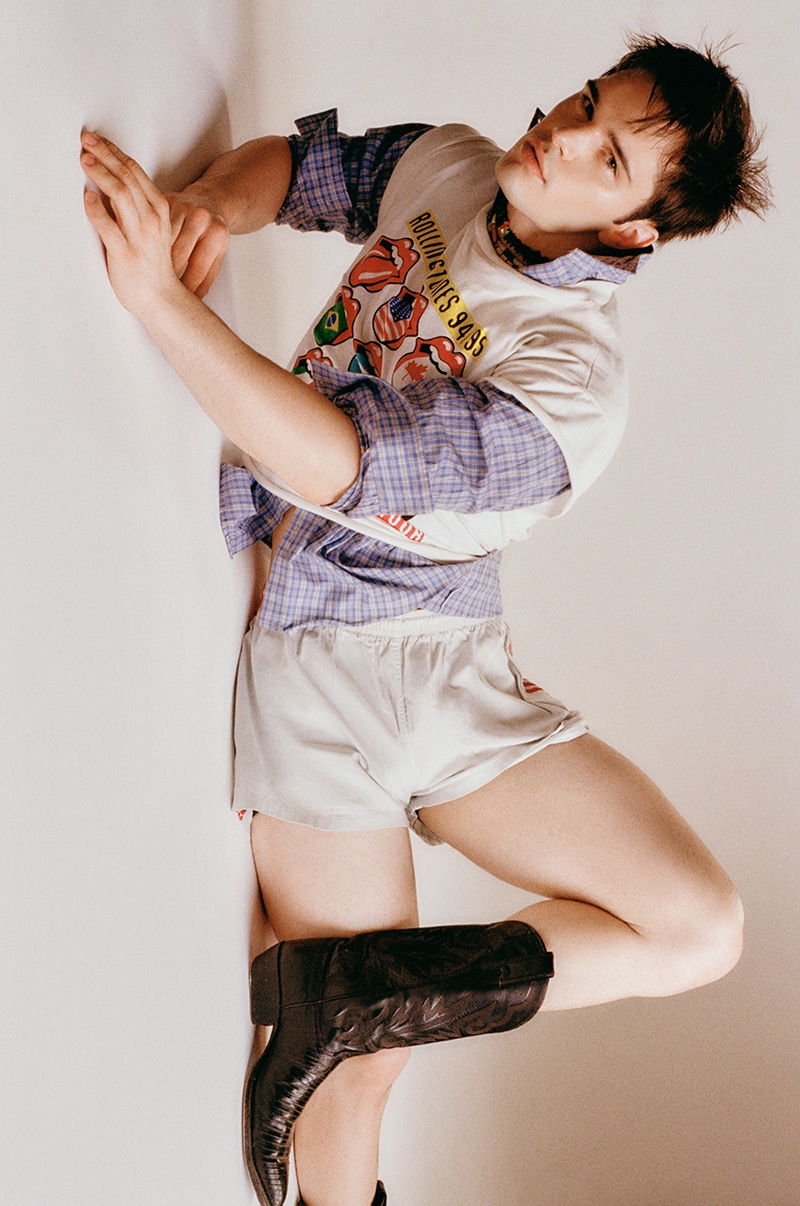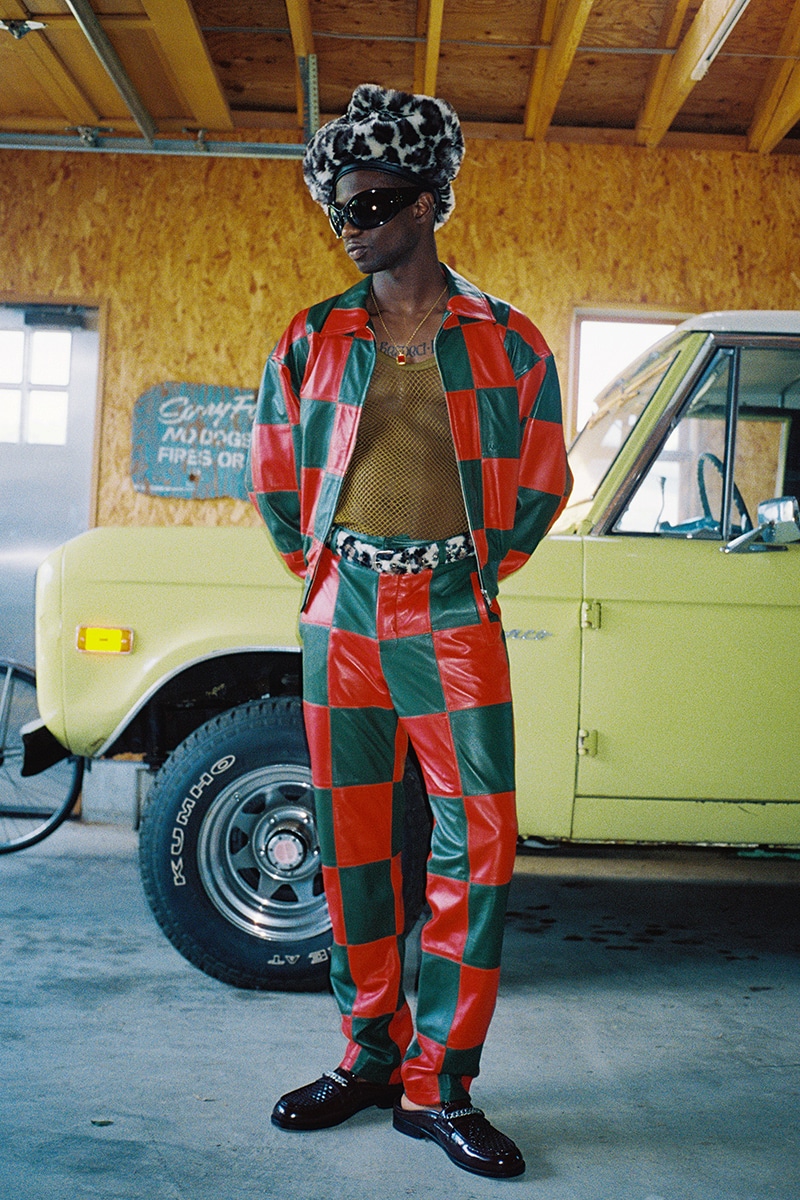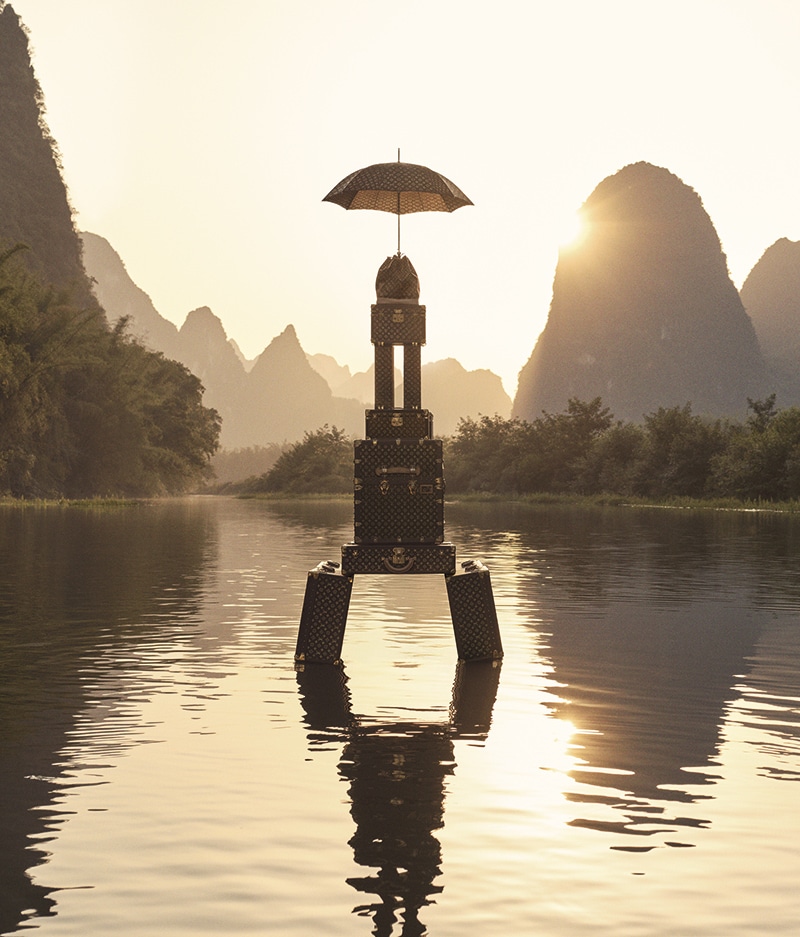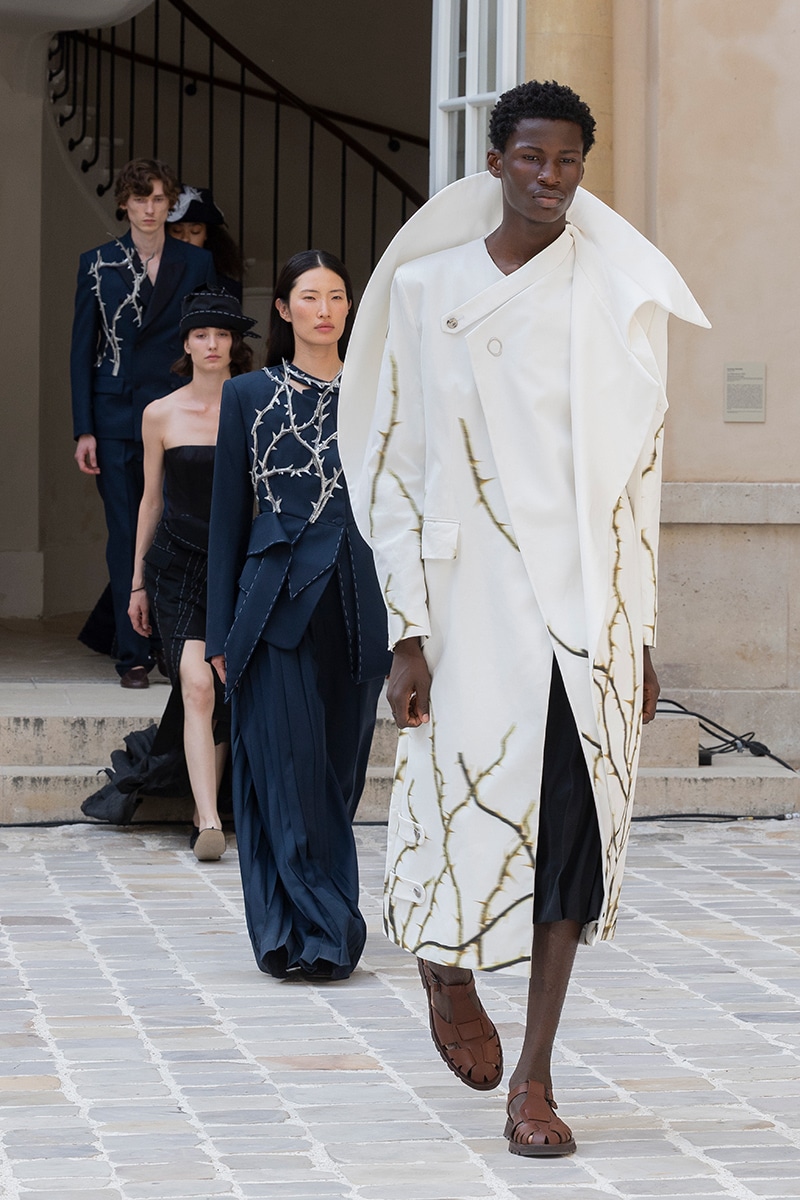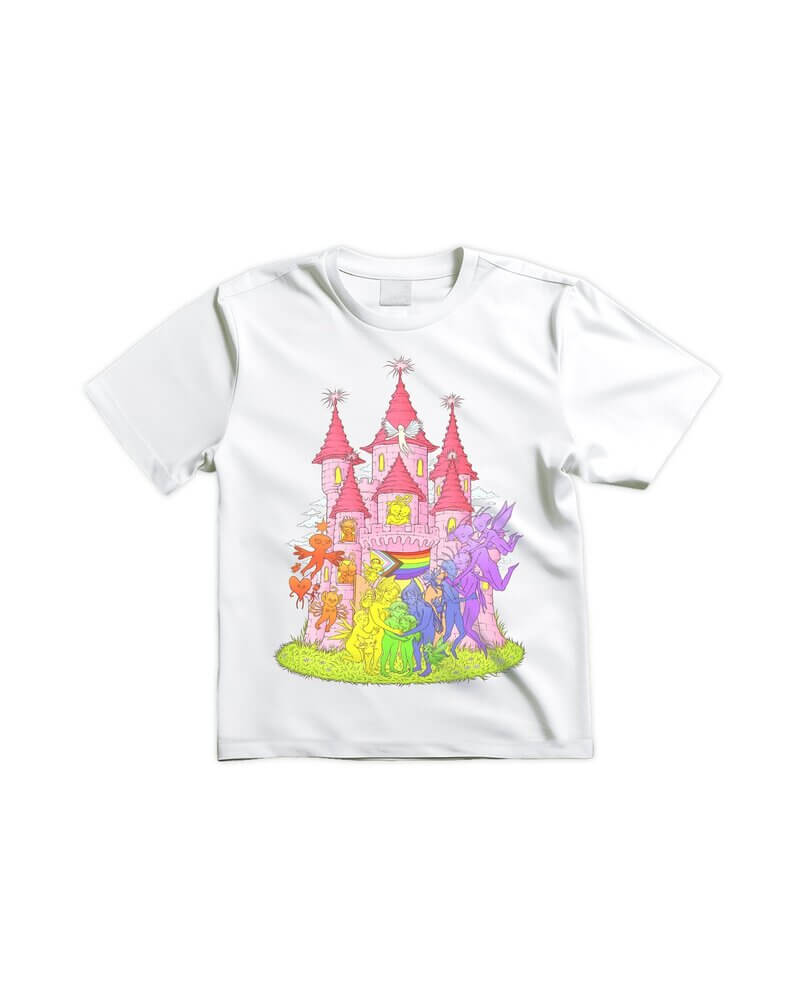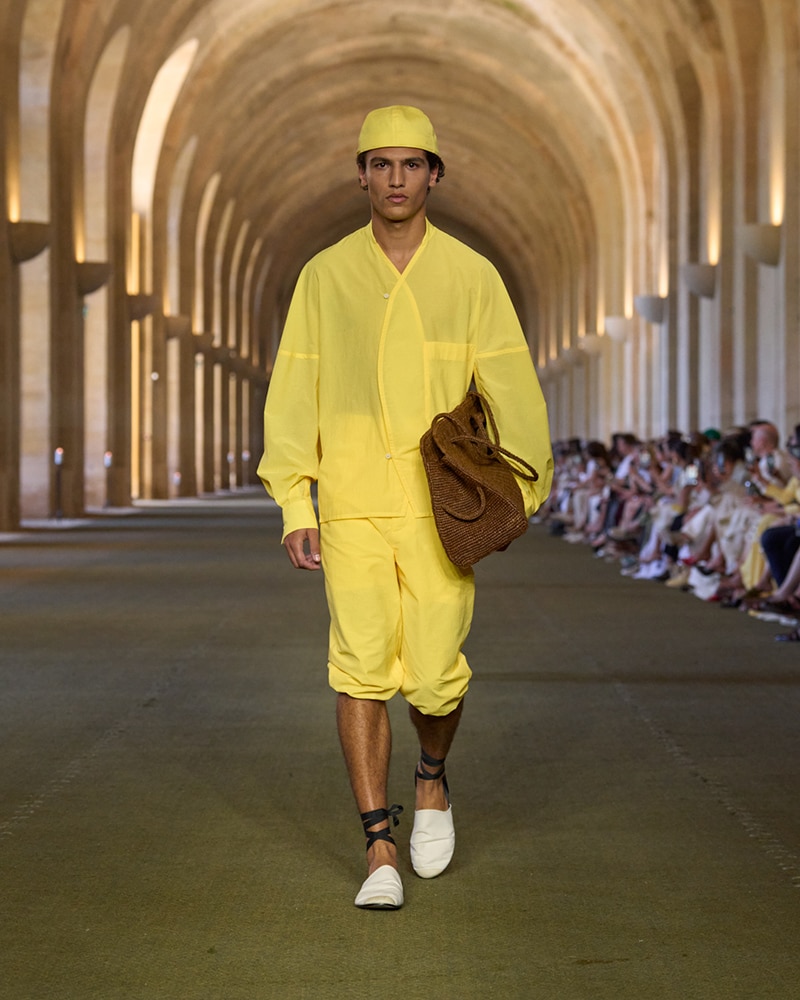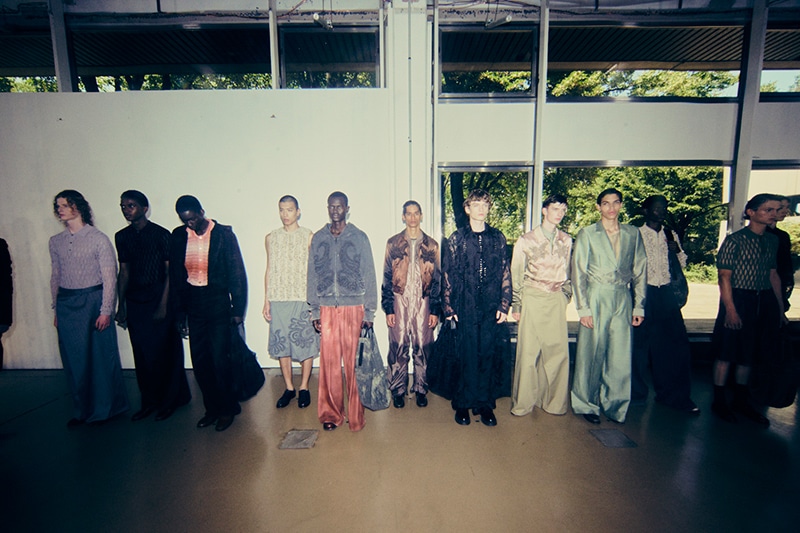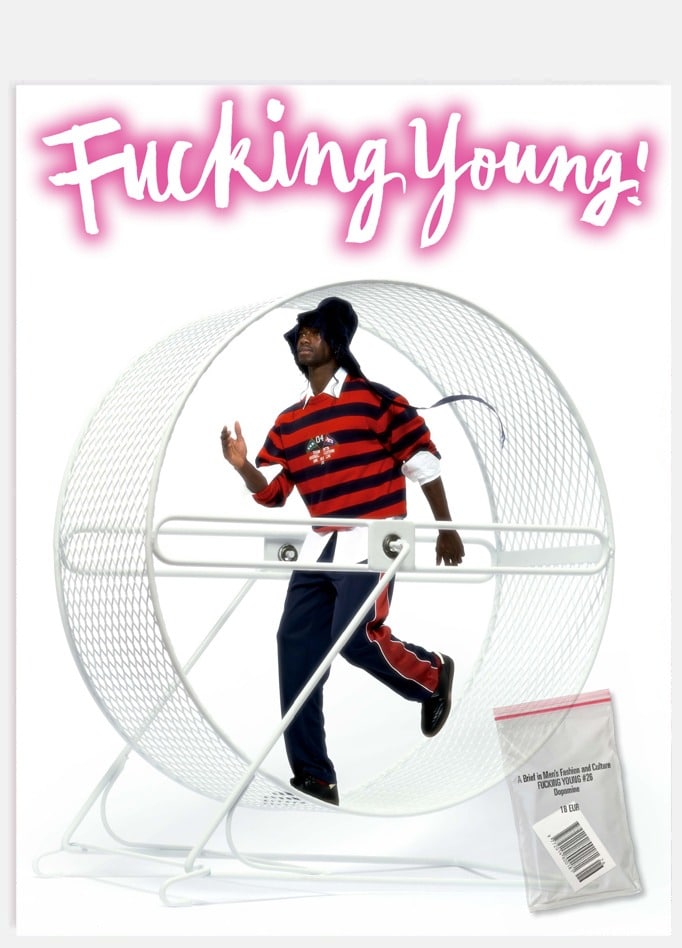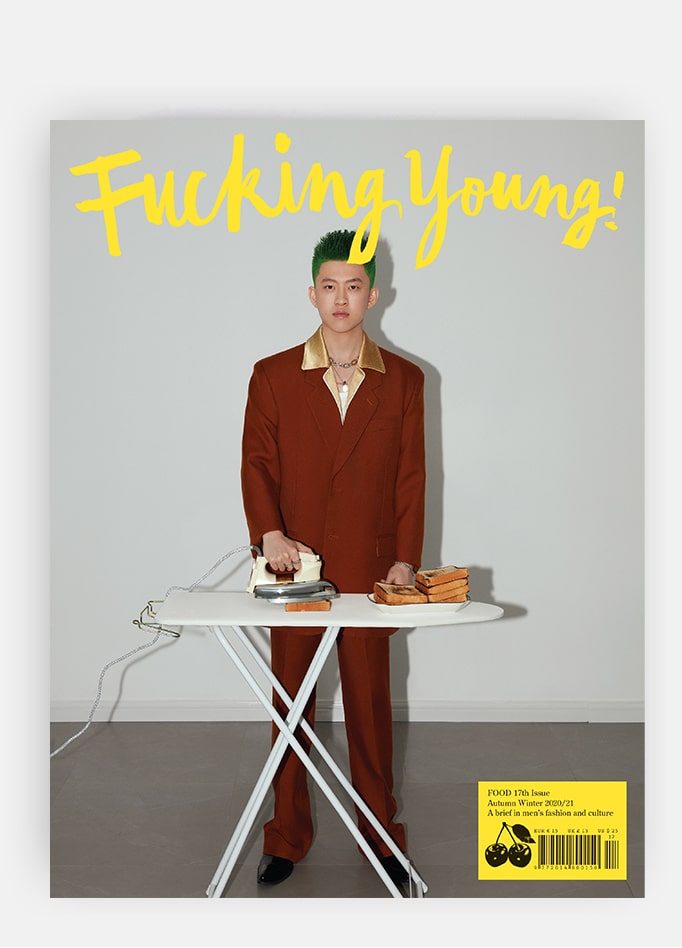Back in September when we met Aliocha Schneider, the day he was celebrating his 30’s. We met him in a cinema in the 18th district of Paris, a place where he came very often to watch movies and chill. It’s not a coincidence that Schneider loves watching movies as alongside being a singer, he is also an actor like his brothers. Growing up in an artistic family, he started his career very young and it’s been more than a decade that he is defending his music while being in Canada and in France. This year, Aliocha released this third album and it’s the first one where he decided to explore his native language by making a 100% French project. An idea that nourished him for years, and now that it’s out, we can appreciate how even in French or English, his songs are still masterpieces.
Here is our conversation with Aliocha Schneider alongside some exclusive pictures shot by photographer Alan Marty.
It’s your third album but the first one in French. What was the main reason for switching languages?
I’ve always been interested in singing in French but it has been a complex process for years. I’ve got my markers in the English language and I was at ease making music like this even if it’s not my birth language. When my second record came out during Covid-19 in 2020, everything was canceled and I felt that maybe it was the proper moment to explore the fact that I can make music in French. I started by translating one track and it was the beginning of the transition. I’ve learned how to reappropriate the French language and wanted immediately to make a French record.
Are there any particular French influences when making this record?
I felt that when I started making this record, many photographs, books, and movies I’ve seen during that time were inspiring me daily. Doing exhibitions with friends I was hanging out with, for example, was nourishing the ideas I’ve put into music. When I was in Greece filming the TV show “Salade Grecque” with Cédric Klapisch, the location gave me inspiration to make something warm. I was living there for months and being next to the sea as well as the Mediterranean culture were inspiring me.
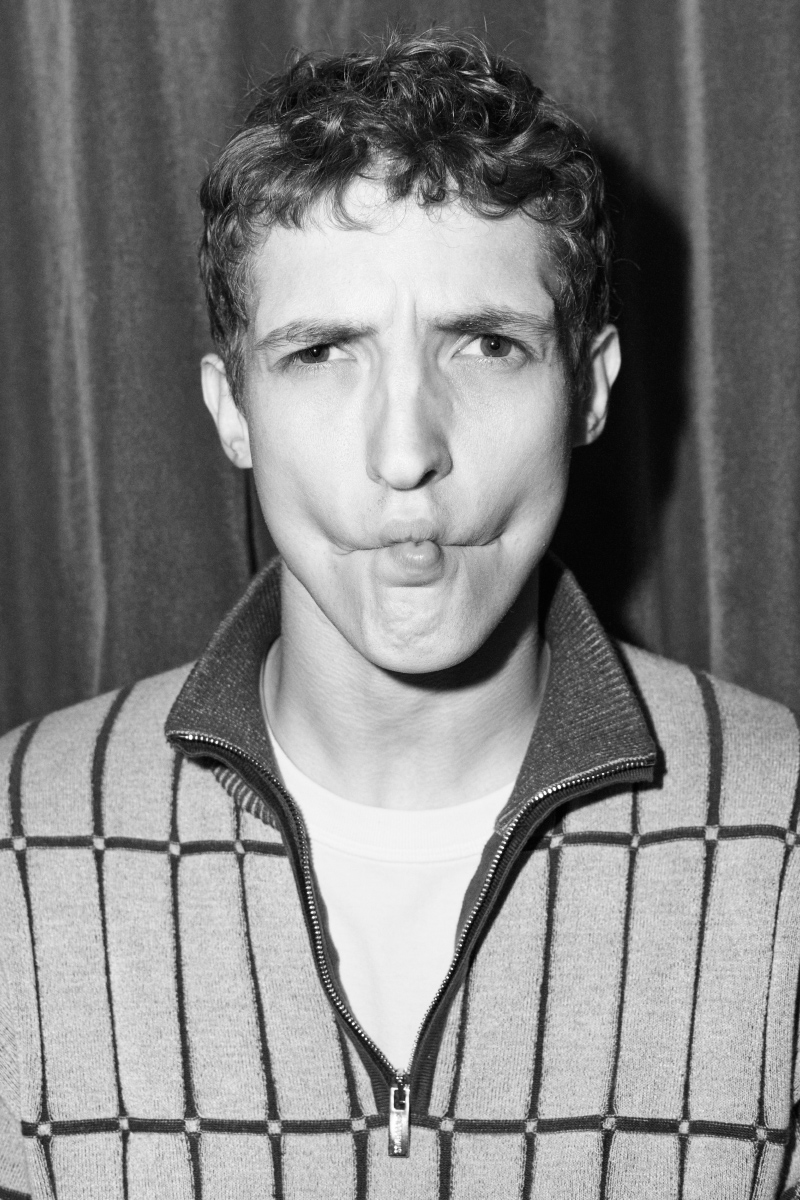
Is discovering new cultures by traveling and escapism a better way for you to create new music?
Yes, it’s true that having the sea in front of you every day was a pretty postal card that was nourishing my inspiration. Greece has a symbolic place which helped me to start this record correctly. The daily life in the streets in Athens was my mood board.
You were in Greece for a TV show but you were already thinking about the upcoming album. How was it to create when you were in this kind of situation? Is the process of making music while acting that much different?
It’s totally different because when I’m doing music, it’s my own project with my words. When I’m acting it’s someone else’s project and I’m playing a role. When the movie is out, I feel that I need to move forward quickly as it was a role. In music, it’s more frontal and you can’t hide yourself through a character. You need to defend it yourself.

You directed your music video “Ensemble”, was it a natural process to make it yourself? Especially when we know that this song is so intimate.
My acting experiences gave me the confident feeling that I needed to do this by myself. It was an evidence to direct this music video. This track is about how compàlicated it was to have a long-distance relationship and I wanted it to be natural. With my friends, my little brother, and the location where I live in Paris. A homemade and natural process for sure.
Talking about how difficult it was for you to have a long-distance relationship with your girlfriend, was there any moment of doubt during making this album?
Yes, I think it was when I was writing “Ensemble”, which is for me the most intimate song on the record. I guess I wanted to have a co-author on it because it was difficult for me to defend it alone. We did several versions of this song but it was rude to keep it simple and honest. It was a moment where I realized that even if it’s the most intimate song ever, you need to be chill and take a form of distance when it’s too personal. That was a cool experience in the end.

And we can hear the voice of your girlfriend Charlotte Cardin on that track as well…both of you are musicians, do you help each other in the writing process?
We don’t really write together as we have two different processes of writing and making music. For me, I make her listen to my demos and she advises me a lot about useful additions. In the studio, she is very good at having the proper words if we are stuck with the lyrics while recording. The fact we live together is a natural process between us. It was the same when I was living with my brothers. Caring and helping each other.

Concerning the writing process, are there any songs that could not make it in the final track list of the record?
I think we didn’t really scrap tracks because since the beginning we knew the color and the sound of this album. There was only one song that my label found out randomly and pushed me to make something with but it did not match the rest. The vibes of the song were more up-tempo and we wanted a more chill and relaxed mood for this new album.
Are there songs you released in the past that could have been different now?
It’s complicated to realize if it could have sounded different. It’s like an old picture of you, if you watch it again, you will clearly see how you were not dressed correctly or your haircut was tacky. I have this song “Flash In The Pan” I wrote when I was 18 and it’s still a song I’m proud of. It’s been part of a particular moment of my life so it’s all about the context.

Are you the type of guy who doesn’t listen to others’ music while creating or are you addicted to discovering new sounds constantly?
I listen to all sorts of music, everything which is out as I’m very curious about what’s new. I don’t really get inspired when I’m listening to the TOP 50 tracks for example. But it’s my playlist when I’m doing my fitness!

You told me previously that when your second album came out it was during the COVID-19 sanitary crisis. How did this situation impact you and your music? You didn’t defend this album live finally.
It was all about a reconsideration of how the music industry is a business and it can cause important economic issues. I had always dreamed that music was just art but quickly I understood how fragile this industry is. During the Covid-19, I was stuck because nobody could work to defend this record and I felt bad for all these people working with me who could not really work. It was rude to realize how Covid-19 put so many things on stand by.
And what was the most beautiful moment when you created this new record?
It’s been with producer Marc-André Gilbert who came to Greece to record the track “Paradis”. He was working in his home studio with a melody and I was singing the top line and then he told me “It’s good so I’m coming” and we created this song with my friends and actors of the TV show we were making on this track.

